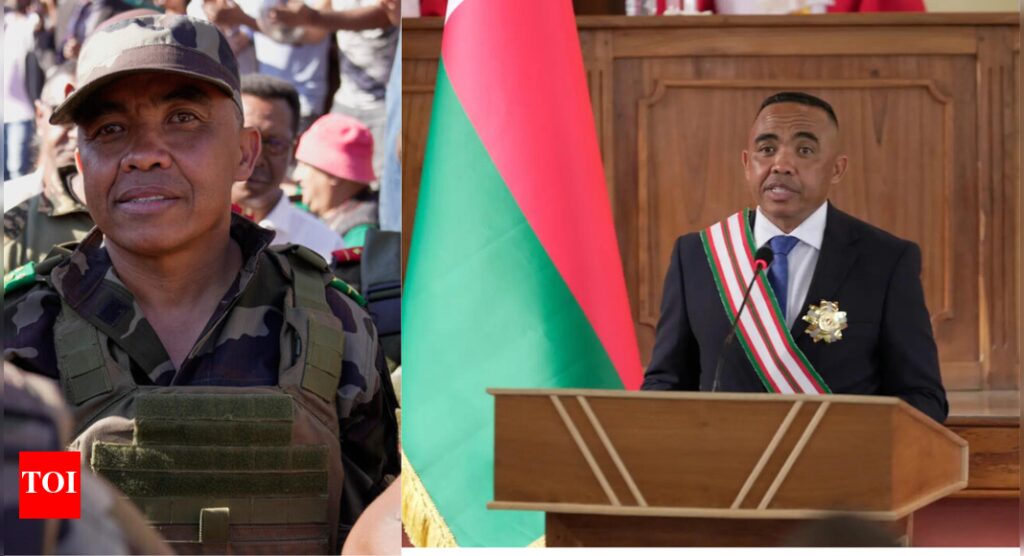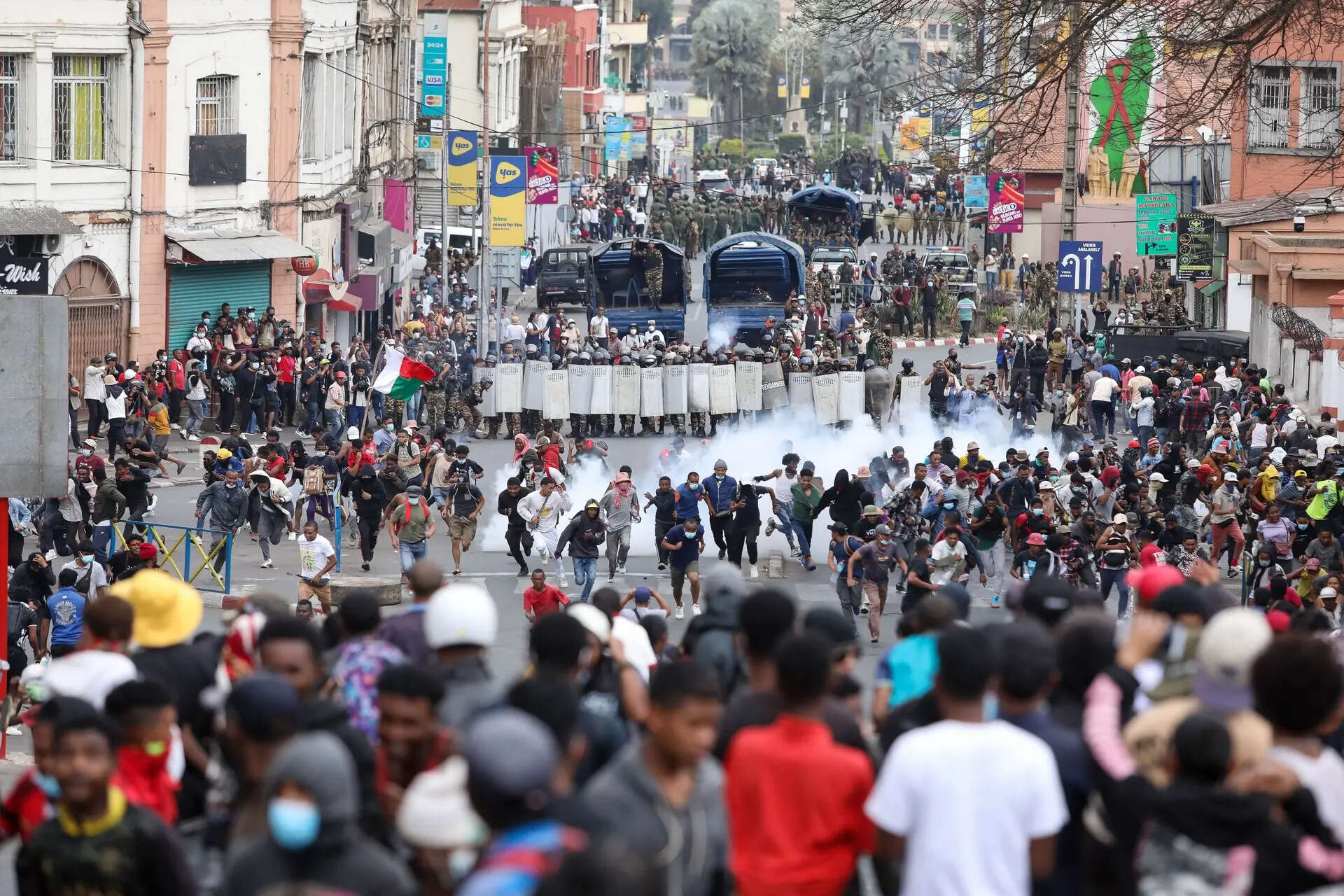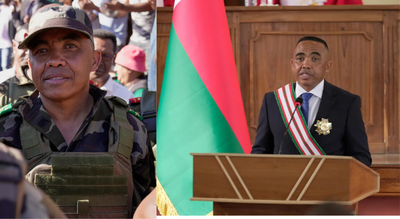From prison to presidency: Madagascar’s coup leader sworn in as president – who is Colonel Michael Randrianirina? | World News

Colonel Michael Randrianirina, once a relatively obscure military officer, is now Madagascar’s most powerful figure. Days after leading his elite CAPSAT unit into the streets of Antananarivo to join youth-led protests demanding President Andry Rajoelina’s resignation, Randrianirina was sworn in as the country’s leader. His ascent, coming after a brief imprisonment for an alleged mutiny, has transformed a soldier from the southernmost reaches of Madagascar into the head of state.
Early life and military career
Randrianirina was born in 1974 in Sevohipoty, a small village in the Androy region of southern Madagascar. Little is publicly known about his family, but his career path reflects a steady rise through the military ranks. He served as governor of Androy from 2016 to 2018 under former President Hery Rajaonarimampianina. Following that, he commanded an infantry battalion in Toliara until 2022, before being promoted to a senior leadership role in CAPSAT, Madagascar’s elite military unit that previously played a key role in bringing Rajoelina to power in 2009. Throughout his career, Randrianirina became known for discipline and pragmatism. He was also a vocal critic of Rajoelina, contrasting with the president’s return to power in 2018 after having initially seized control through a 2009 coup. This tension would later set the stage for his decisive role in the 2025 political upheaval.
Imprisonment and political tensions
Randrianirina’s relationship with Rajoelina turned openly adversarial in 2023. In November of that year, he was imprisoned without trial for allegedly inciting a mutiny and planning a coup, according to Reuters. He spent most of his three-month detention at a military hospital, reflecting the authorities’ recognition of his prominence and influence within the armed forces. Student groups, fellow soldiers, and politicians decried his incarceration as politically motivated, framing it as retaliation against a rising critic. He was released in February 2024, stepping out of prison to a country where the lines between military authority and political power were already dangerously blurred.
The Gen Z protests and the seizure of power
The immediate context of Randrianirina’s rise was the wave of protests organized by young Madagascans, primarily a Gen Z movement known as Gen Z Mada. Angry at persistent water and electricity shortages, as well as high living costs, corruption, and lack of opportunity, the youth-led demonstrations erupted across the capital in late September 2025.

Demonstrators protesting against chronic electricity and water cuts confront riot police in Antananarivo, Madagascar, Tuesday, Sept. 30, 2025. (AP Photo/Mamyrael)
Last weekend, as the protests swelled, Randrianirina’s CAPSAT unit joined the demonstrators. According to Reuters, he drove with troops into the city centre and publicly announced that CAPSAT was taking control. The Constitutional Court quickly ratified the transition, installing him as president even as the ousted Rajoelina refused to concede. In a statement to the BBC just hours before his inauguration, Randrianirina described himself as a “servant” of the people, exuding confidence and calm without arrogance.
Presidency and Immediate Priorities
On assuming office, Randrianirina traded his fatigues for a presidential suit, complete with official sash and star of office, symbolizing the transition from military command to political authority. “We are committed to breaking with the past,” he told the BBC, promising to address the systemic causes behind the protests, including chronic shortages of water and electricity. He immediately launched an investigation into the state-run electricity and water company, signaling a hands-on approach. He has pledged that the military will govern alongside a civilian administration for up to two years before elections are held. In interviews with The Associated Press, he framed the takeover as an act of patriotism: “From now on, we will restore the country to its former glory, fight against insecurity, and gradually try to solve the social problems that Malagasy people experience.” Randrianirina also signalled a cultural shift, refusing to respond in French when offered the chance, asserting the primacy of the Malagasy language: “Why can’t I speak my language, Malagasy?” His stance reflects a determination to distance his administration from colonial legacies while asserting national identity.
A leader in context
Randrianirina’s sudden elevation from prisoner to president underscores both the fragility and volatility of Madagascar’s political landscape. While the African Union and United Nations Secretary-General Antonio Guterres have condemned the takeover as a coup, Constitutional Court president Florent Rakotoarisoa rejected this characterisation, arguing that structural constitutional flaws contributed to the crisis. Despite a minor clash with gendarmerie forces loyal to Rajoelina, during which a CAPSAT soldier was killed, Randrianirina’s troops were largely celebrated, and public support has been bolstered by youth who view him as the embodiment of their frustrations and aspirations. As Madagascar enters this transitional period, Randrianirina’s leadership will be defined by his ability to manage the balance between military authority, civilian governance, and international scrutiny.






